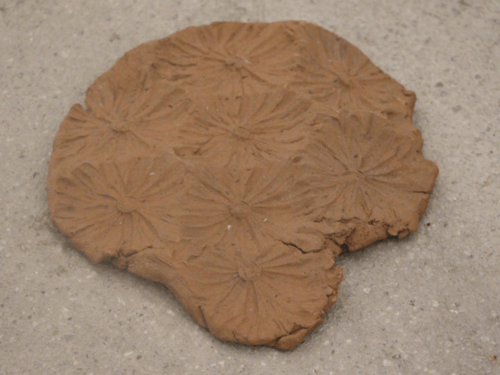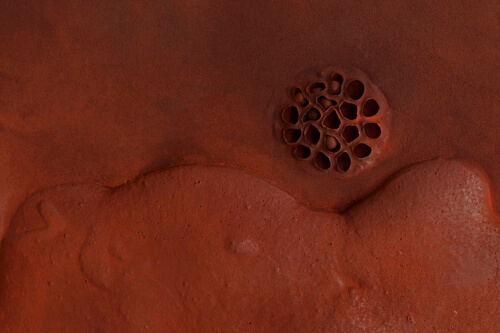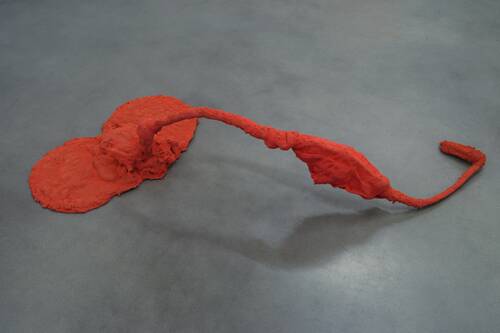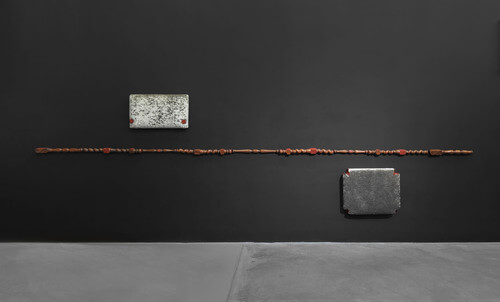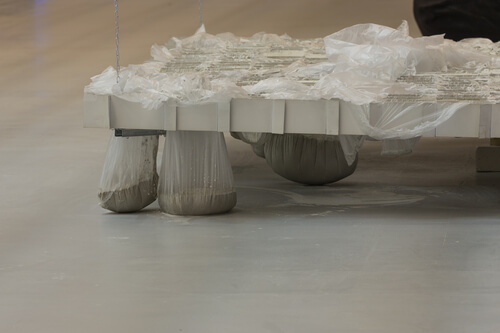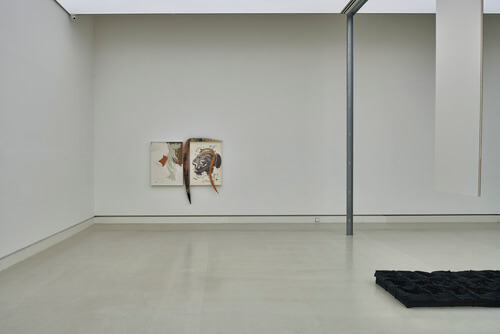Community Project
Mantenimiento – Comunidad de San Isidro Llano Grande
The German artist Phillip Zach developed a multisession workshop together with two classes of the high school of the community San Isidro Llano Grande. When talking about their work and that of their families, many Zapotec campesinos (farmers) use the term mantenimiento to describe a whole a spectrum of activities related to food production, not making a clear distinction between agriculture, food preparation and consumption.
Departing from this non-distinction between life and work, the class developed invasive thoughts on coevolution and mutual domestication between plants and humans, the practice of permaculture, do-nothing farming and the Milpa – a farming technique originating in Mesoamerica. Masanobu Fukuoka’s one-straw revolution was introduced to discuss agriculture as activism and independence in times of GMO’s and the modern industrial food complex. Tracing histories of coevolution, symbiosis, and global exchange, the class talked about the ancestors of today’s native crops, like teosinte as well as crops that was introduced to Mexican culture, and it’s landscapes like mango, neem, moringa, sugar cane, lemon, and lime.
Following the movement of water, light, nutrients and air through the branch architecture of lime trees, an introduction on citrus pruning at the orchard of Casa Wabi opened up thoughts to use plant physiology to project and direct the energy the flow of one’s own life. The students collected seeds of both wild and domesticated plants including flowers, trees, medicinal herbs, and “weeds”, which were then all mixed. Using this seed mix together with local clay, which is used to make the local red pottery, the class formed seed bombs – vehicles containing mini plant communities. These can easily be transported in one’s pocket and activated simply by dropping them wherever they are needed, for instance to bring green into the dead spaces of the city.
The German artist Phillip Zach developed a multisession workshop together with two classes of the high school of the community San Isidro Llano Grande. When talking about their work and that of their families, many Zapotec campesinos (farmers) use the term mantenimiento to describe a whole a spectrum of activities related to food production, not making a clear distinction between agriculture, food preparation and consumption.
Departing from this non-distinction between life and work, the class developed invasive thoughts on coevolution and mutual domestication between plants and humans, the practice of permaculture, do-nothing farming and the Milpa – a farming technique originating in Mesoamerica. Masanobu Fukuoka’s one-straw revolution was introduced to discuss agriculture as activism and independence in times of GMO’s and the modern industrial food complex. Tracing histories of coevolution, symbiosis, and global exchange, the class talked about the ancestors of today’s native crops, like teosinte as well as crops that was introduced to Mexican culture, and it’s landscapes like mango, neem, moringa, sugar cane, lemon, and lime.
Following the movement of water, light, nutrients and air through the branch architecture of lime trees, an introduction on citrus pruning at the orchard of Casa Wabi opened up thoughts to use plant physiology to project and direct the energy the flow of one’s own life. The students collected seeds of both wild and domesticated plants including flowers, trees, medicinal herbs, and “weeds”, which were then all mixed. Using this seed mix together with local clay, which is used to make the local red pottery, the class formed seed bombs – vehicles containing mini plant communities. These can easily be transported in one’s pocket and activated simply by dropping them wherever they are needed, for instance to bring green into the dead spaces of the city.
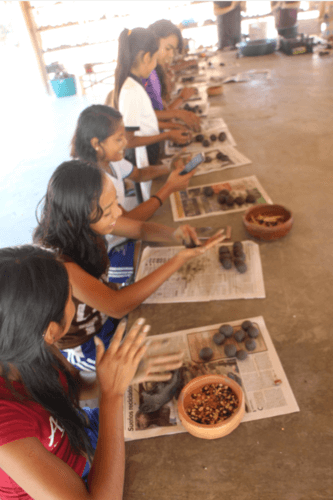
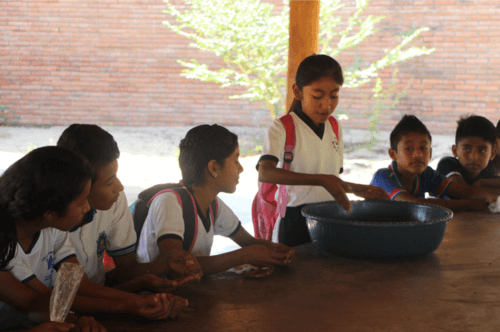
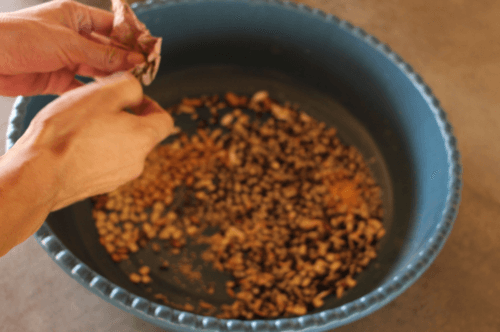
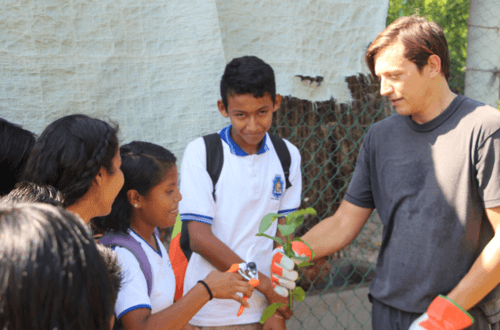
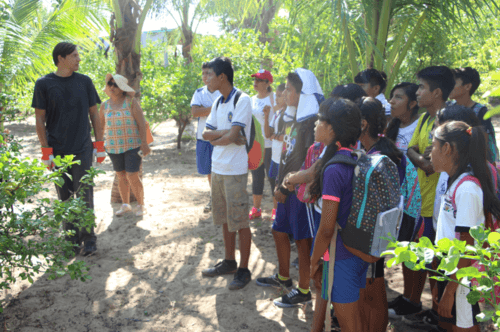
Germany
Cottbus, 1984
Expanding common notions of image, sculpture, installation and performance, Zach has a created a body of work that addresses frictions between physical realities and mental spaces. The stretching of a wave for example, opens a meeting point for the cognitive, subjective perception of our brain and matter’s universality. Capturing unique moments among the infinity of temporal possibilities, each of his works acts as a kind of photography, fixing a phenomenon.
His work has been shown at Freedman Fitzpatrick, Los Angeles/Paris; La Panacee, Montpellier; CAC, Vilnius; Kunsthalle Mainz; Kunsthalle Zürich; Dortmunder Kunstverein; Luma Foundation, Zürich; Biennale of Graphic Arts, Ljubljana; Halle für Kunst, Lüneburg; Greene Naftali Gallery, New York; Casey Kaplan Gallery, New York; Koppe Astner Gallery, Glasgow; DREI, Cologne; Museum of Contemporary Art, Roskilde; Ellis King, Dublin; The Depart Foundation, Los Angeles; Frieze New York; Laura Bartlett, London; Frankfurter Kunstverein; Michael’s, Santa Monica; Johan Berggrean Gallery, Malmö White Flag Projects, St. Louis; New Jerseyy, Basel (among others).
His work has been shown at Freedman Fitzpatrick, Los Angeles/Paris; La Panacee, Montpellier; CAC, Vilnius; Kunsthalle Mainz; Kunsthalle Zürich; Dortmunder Kunstverein; Luma Foundation, Zürich; Biennale of Graphic Arts, Ljubljana; Halle für Kunst, Lüneburg; Greene Naftali Gallery, New York; Casey Kaplan Gallery, New York; Koppe Astner Gallery, Glasgow; DREI, Cologne; Museum of Contemporary Art, Roskilde; Ellis King, Dublin; The Depart Foundation, Los Angeles; Frieze New York; Laura Bartlett, London; Frankfurter Kunstverein; Michael’s, Santa Monica; Johan Berggrean Gallery, Malmö White Flag Projects, St. Louis; New Jerseyy, Basel (among others).

